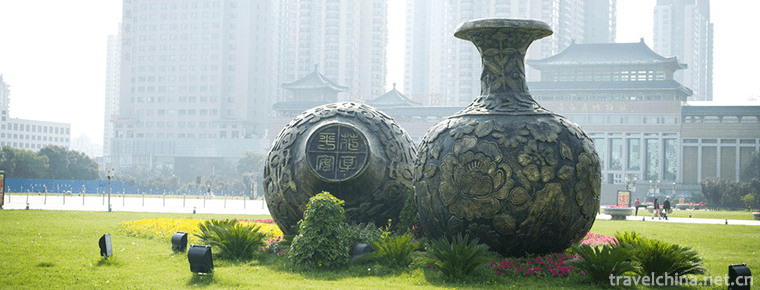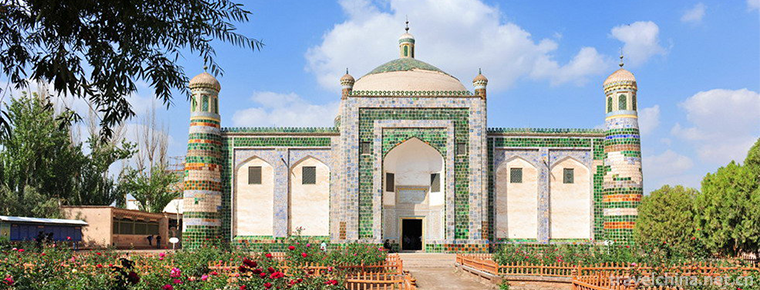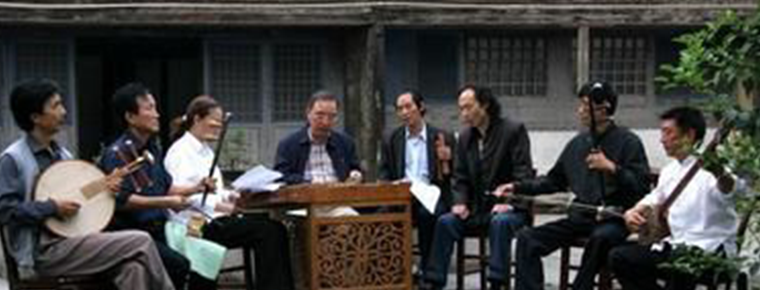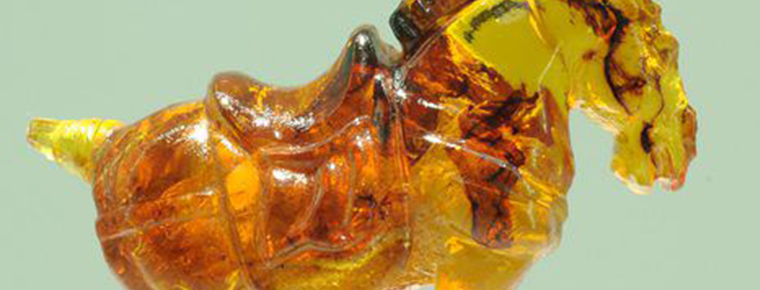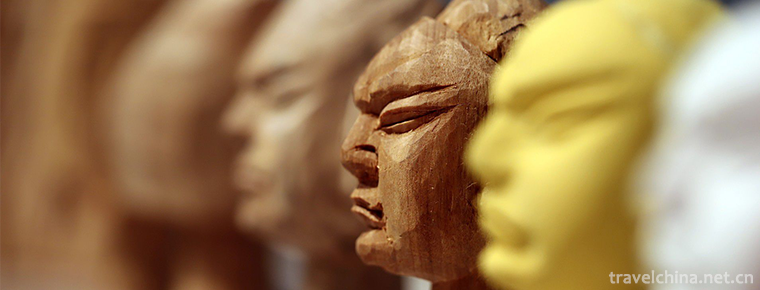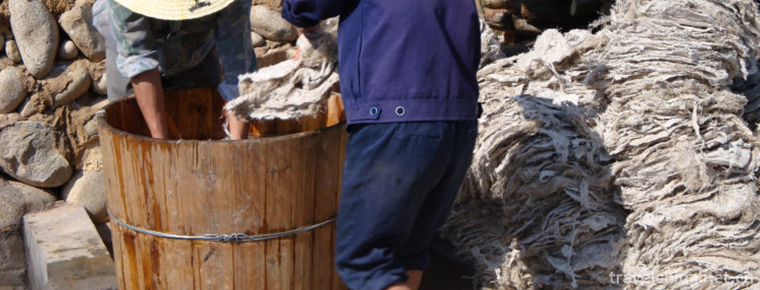Maoshan chant
Maoshan chant
Maoshan chant is a traditional folk song originating in Maoshan area of Xinghua City, Jiangsu Province. It is a kind of folk song that people in Maoshan use chant form with chant words to stimulate emotions and express their mind.
On May 23, 2011, Maoshan Number was approved by the State Council to be included in the third batch of national intangible cultural heritage list.
historical origin
Xinghua labor slogan originated from the Baili water town of Xinghua, which dates back to the Qin Shihuang era. Qin Shihuang built the Great Wall in order to unify China. Meng Jiangnu sent her cold clothes to the Great Wall to see the peasant laborers'chants of "humming", eliminate fatigue and seek pleasure. Fortunately, when Maoshan natives returned home, they sent home the chants that the migrant workers hummed when they built the Great Wall. For thousands of years, folk songs have been inherited from generation to generation and innovated continuously. Maoshan Chant has emerged as the times require, with strong national characteristics and local charm.
Because Maoshan is located in a remote part of Zeguo, warlords fighting, not affected, the people of Maoshan mainly produce, every production season, the field is still up and down, but never heard of. After the Qiqilugou Bridge Incident, the people of Maoshan area plunged into the anti-Japanese front fire, and the Maoshan chant sank. Until the liberation of Maoshan in 1944, when the people of Maoshan welcomed their participation in the army, the trumpet of Maoshan sounded again in Tiantou and Lane End: "When serving as a soldier, we should be a new fourth army, protecting our country and defending the people".
In 1956, Zhu Xianglin, a town folk singer, went to Beijing with the provincial song and dance troupe to attend the first national music week, and sang in the Zhongnanhai Sea. After that, she won a silver prize at the World Youth Festival and was released as a record. She was received by Chairman Mao and other central leaders. Zhu Xianglin also went to Korea to offer condolences. In 1954, Zhu Xianglin and Maoshan folk singers joined the French Song and Dance Troupe in Shanghai. Maoshan's song and dance troupe has been brilliantly performed up to now. In 1986, Shi Bin, a folk singer, won the first prize in the "Spring of the Field" singer contest of young farmers in the province. In 1997, Maoshan Town held the "Maoshan Chant" Competition, which was reported by the People's Daily and other news media. In 2005, the Maoshan chant sung by Lu Aiqin won the prize of the Jiangsu Water Township Youth Competition. In 2007, on the stage of CCTV's "Happy China Tour, Charming Taizhou", three Maoshan folk singers, such as Lu Aiqin, opened their voices and played Maoshan chant. They performed with famous Taiwanese singer Jay Chou and CCTV host Dong Qing, and won warm applause from the audience. In 2007, he won the silver prize in Jiangsu Province's "New Works of Qunwen" Competition, and then Maoshan Chant took part in the opening ceremony of Watching Home and the Third Jiangsu Cultural Relics Festival, which was highly praised by the provincial leaders. Maoshan Number Entering Campus was well-known. 39 tunes of Maoshan Number were compiled and printed into a book. They were sung among the students of middle and primary schools in Xinghua City, so that Maoshan Number could be handed down from generation to generation. Maoshan Town also holds an annual Maoshan Chant Singing Competition to continuously improve the singing level. The "Maoshan Name" contest held in 1997, People's Daily and other news media, reported on it.
artistic characteristics
As a folk song "Maoshan Chant" has a high artistic taste, it is called a wonderful flower of national music in Jiangsu folk songs. She has formed a unique folk song style of high-low coordination and good singing with a long melody, bright and powerful music rhythm, fast and slow free singing speed and consistent singing form.
From the form of expression of labor, Maoshan chant can be divided into Cheshui chant, seedling-planting chant, weeding chant, shoulder chant, mill chant and bracket chant.
In terms of music structure, it can be divided into long trumpet and short trumpet. According to people's gender and division of labor, there are young and middle-aged men's chants, such as car water chants, shoulder chants, etc., which are characterized by rough, bold and vigorous, and young and middle-aged women's chants, such as seedling planting chants and weed chants, which are crisp, sweet and melodious.
In terms of singing style, Maoshan people are steady in playing chants, strong in pronunciation, clear in pronunciation and flexible, which truly reflects the characteristics of national singing style.
Maoshan chant has different tunes in different farming activities, mostly self-compiled and self-singing. Later, after the processing and embellishment of the literati in Maoshan area, the melody is becoming more and more perfect, and the curtains are becoming more and more abundant. Among them, there are ancient characters who sing loyalty and filial piety, heroic warriors who sing patriotism and cherishing the people, peasants who live happily all the year round, and men and women who express their pure love. Every busy season, the fields in Maoshan area are full of chants and laughter.
Representative works
From 1953 to 1959, singers who played better Maoshan trumpets often went to Shanghai and Nanjing to participate in folk song performances and competitions. Zhu Xianglin, a famous singer in Maoshan, once accompanied Jiangsu Song and Dance Troupe to visit the Chinese People's Volunteer Army. In Korea, she sang the Maoshan chant "Sino-Korean Jointly Defeat American Ambition Wolf", which was warmly praised by the instructors and soldiers.
In September 1956, Zhu Xianglin accompanied Jiangsu Song and Dance Troupe to attend the National Concert Week in Beijing, and sang "Liang Shanbo and Zhu Yingtai" and other "Maoshan Chant" in Zhongnanhai. Her melodious singing was released as a record.
Inheritance significance
Maoshan's slogan conveys feelings and ideals and serves for the revolutionary struggle before liberation; serves for major historical events after liberation, land reform, cooperation and great leap forward; since the reform and opening up, it pays special attention to eulogizing the rapid economic development and the new life of peasants. The specific singing method is to lead the singing by one person, and everyone should be in harmony. The exciting singing and the rhythm of labor blend harmoniously, and the local voice and people's simple feelings and desires converge, which can regulate emotions and increase motivation.
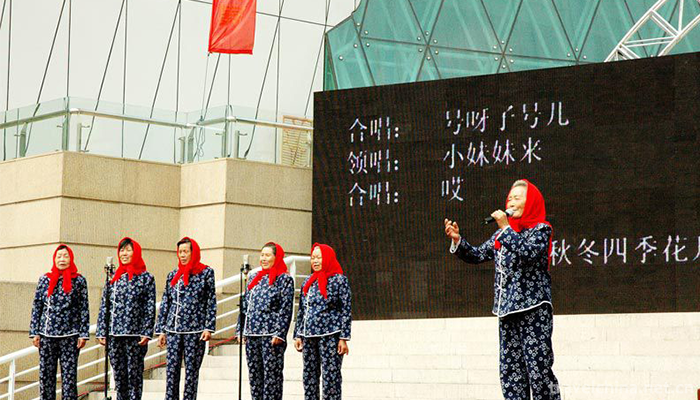
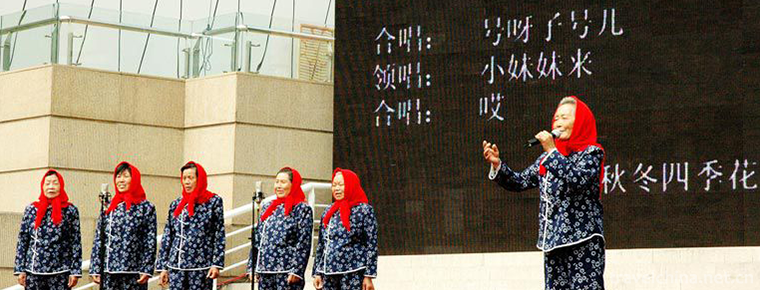
Maoshan chant
-
Yuanyi Shuangfeng Lake International Tourist Resort
Yuanyi Shuangfeng Lake International Tourist Resort in Anhui Province is a high-level tourist resort integrating Golf and leisure. Located in the beautiful scenery, with a total area of more than 2000
Views: 151 Time 2018-12-23 -
Qinghai Provincial Museum
Qinghai Museum is located in the east of Xining Square in the west of Xining City. It is the first large-scale comprehensive museum with modern functions in Qinghai
Views: 237 Time 2019-02-07 -
Abakh Hoja Tomb
Xiangfei Tomb is located in Haohan Village, 5 km east suburb of Kashgar City. It is a key cultural relic protection unit in the autonomous region. This is a typical Islamic complex of ancient building
Views: 171 Time 2019-02-25 -
Xingtai Grand Canyon Tourist Area
Xingtai Grand Canyon is a national AAAA scenic spot, a national key scenic spot and a national geological park of China. It is located in Hejiaping Village, Luozhen, Southwest Road
Views: 279 Time 2019-02-26 -
Enshi dulcimer
Enshi Yangqin, also known as Enshi Silk String, was made up of Hunan Opera, Southern Opera, Chu Tune, folk minor, instrumental music licensing scholars and
Views: 128 Time 2019-04-28 -
Amber carving
Fushun Amber, a special product of Fushun City, Liaoning Province, is a national geographical indication product of China.
Views: 132 Time 2019-05-03 -
Puppet Head Sculpture
Zhangzhou puppet head carving is a traditional folk arts and crafts in Zhangzhou City, Fujian Province. It belongs to a special skill in the production of puppet stage props. Zhangzhou puppet head car
Views: 139 Time 2019-06-06 -
Making Techniques of Lianshi Paper in Lead Mountain
Lead Mountain Lianshi Paper Making Skills, local traditional handicraft in Jiangxi Province, one of the national intangible cultural heritage.
Views: 213 Time 2019-06-10 -
Neijiang climate
Neijiang City belongs to subtropical humid monsoon climate. Affected by the basin and the natural environment, it has the characteristics of mild climate, abundant rainfall, sufficient light and heat, and long frost free period. It is warm in winter and hot in summer,
Views: 309 Time 2020-12-16 -
Nanchong location
Nanchong City is located in the northeast of Sichuan Basin, in the middle reaches of Jialing River, between 30 ° 35 ′ N ~ 31 ° 51 ′ N and 105 ° 27 ′ ~ 106 ° 58 ′ E. With a span of 165 km from north to South and 143 km from east to west, it is adjacent to Dazhou
Views: 357 Time 2020-12-17 -
Meishan social security
In 2019, 2.0419 million people participated in basic endowment insurance for urban and rural residents, 2.676 million people participated in basic medical insurance for urban and rural residents, 297500 people participated in work-related injury insuranc
Views: 488 Time 2020-12-18


